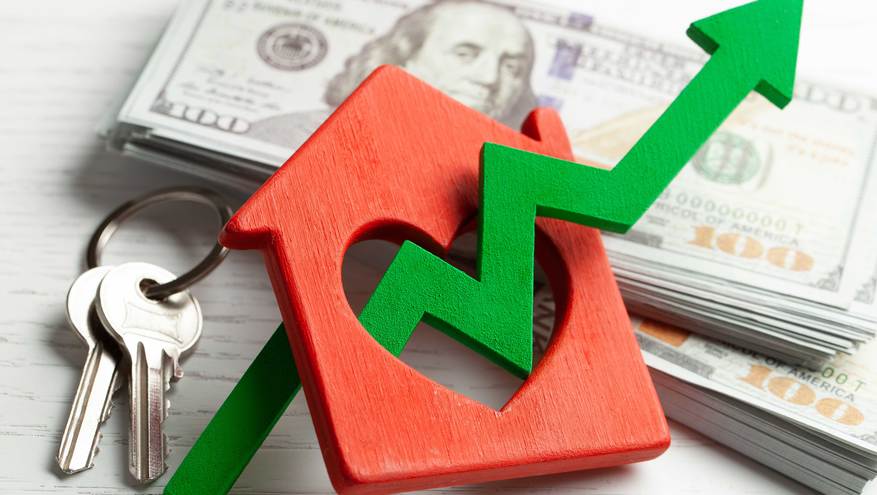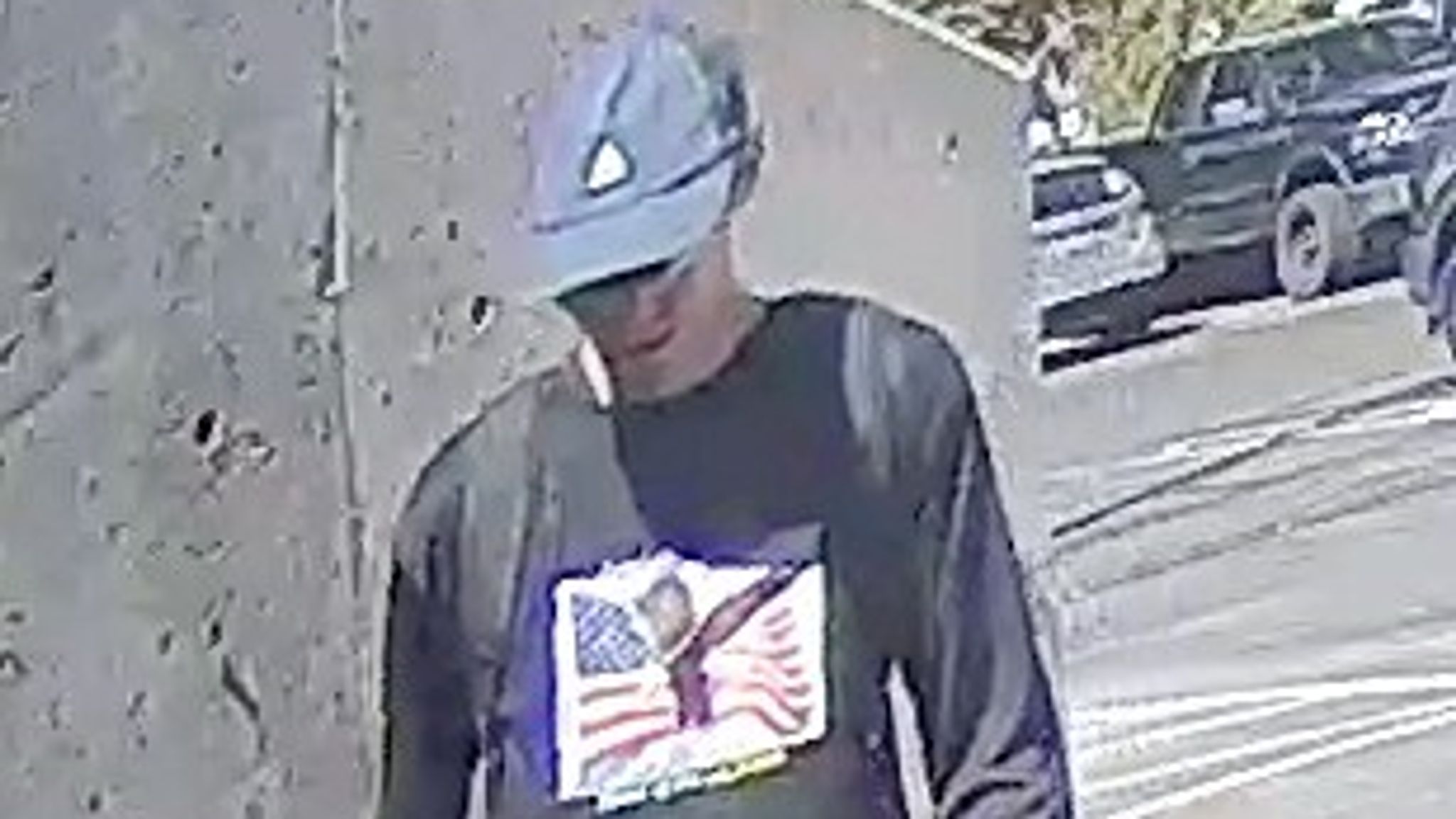Inflation rises again - find out what it means for you and interest rates
Inflation has risen again, from 2.3% in October to 2.6% in November. While this is above the Bank of England's 2% target, it is still within what economists say is a normal range.

Avanti West Coast staff to strike on New Year's Eve
Avanti West Coast staff are set to strike after rejecting a deal aimed at resolving a dispute over rest day working.
Train managers will walkout on New Year's Eve, 2 January and Sundays between 12 January and 25 May, the Rail, Maritime and Transport union (RMT) said.
An RMT spokesperson said: "Our members have resoundingly rejected Avanti's latest offers in two referendums and sustained strike action is now the only way to focus management's minds on reaching a negotiated settlement with the union."
Up to 400 members of the RMT are involved in the dispute and 83% voted against a suggested deal, the union added.
How does inflation in the UK compare with other countries?
Inflation in the UK rose to 2.6% in November, its highest level in eight months.
But how does it compare with other countries?
Britain's inflation is still lower than in the US, but only by 0.1%.
It is higher than Germany, France and the Eurozone, the area that covers all 20 countries in the EU that use the euro, which has managed to hit the target rate of 2% inflation.
What has driven the rise in inflation?
The latest figures show inflation has risen again from 2.3% in October to 2.6% in November. This is the highest rate since March and the second rise in two months.
So what was behind the increase?
Grant Fitzner, the ONS's chief economist, said: "Inflation rose again this month as prices of motor fuel and clothing increased this year but fell a year ago.
"This was partially offset by air fares, which traditionally dip at this time of year, but saw their largest drop in November since records began at the start of the century."
According to the ONS data, prices of clothing rose by 2% in November - up from 1%.
The price of food rose slightly from 1.9% to 2%, while alcohol and tobacco jumped from 5.3% to 6.9% in November.
Rate cut hopes won't be helped by this
Our business and economics correspondent Gurpreet Narwan has been taking a look at the latest inflation figures, which have seen it rise from 2.3% to 2.6%.
She says that while it is higher than the 2% target rate, it is worth bearing in mind that this is a "world away" from where inflation sat a couple of years ago, when it was hitting double digits.
"It peaked at 11.1%. Inflation has broadly been coming down. The Bank of England is cutting interest rates.
"Nevertheless, it is still above the Bank's target and some economists are getting jittery about that.
"The fear is that Rachel Reeves's budget might not have helped the cause. A big increase in public spending and national insurance contributions [for employers] could lead to prices rising, meaning it will take inflation longer to come down.
"And, let's not forget, we are still living with the consequences of the cost of living crisis because prices are still a lot higher than what they were in 2021."
She notes that the latest figures mean an interest rate cut from the Bank of England is less likely to happen tomorrow - though the chances were already very low.
"It means the Bank is probably going to have to take a more cautious approach than our neighbours in the Eurozone and hold interest rates again tomorrow," she adds.
Tories say Reeves's budget will be inflationary
We pointed out at 7am that, despite concern the budget could prove to be inflationary, November's figures are too soon for the impact of Rachel Reeves's measures to have been felt (aside from the tobacco duty hike).
With that context in place, here is how Conservative shadow chancellor Mel Stride has responded to CPI rising from 2.3% to 2.6%...
"The chancellor has made a series of irresponsible and inflationary decisions which, as the independent Office for Budget Responsibility said, will leave inflation higher than it was forecasted in March.
"These figures mean higher costs in the shops, less money in working people's pockets and risks keeping mortgage rates higher for longer.
"Working people cannot afford Labour."
Reeves points to wage growth
We have some reaction from the chancellor.
Rachel Reeves said: "I know families are still struggling with the cost of living and today's figures are a reminder that for too long the economy has not worked for working people.
"I am fighting to put more money in the pockets of working people. That's why at the budget we protected their payslips with no rise in their national insurance, income tax or VAT, boosted the national living wage by £1,400 and froze fuel duty.
"Since we arrived, real wages have grown at their fastest in three years. That's an extra £20 a week after inflation.
"But I know there is more to do. I want working people to be better off which is what our Plan for Change will deliver."
Core and services inflation lower than expected
Regular readers will know that every month attention quickly turns to two figures behind headline CPI - core and services inflation.
Core inflation, which strips out volatile elements such as fuel and food and is therefore a strong marker of what's going on in the economy, rose marginally from 3.3% to 3.5% - slightly lower than expected.
Services inflation, made up in large part by wages, remained unchanged at 5% - again, below expectations.
Inflation rises again
Inflation has risen again, from 2.3% in October to 2.6% in November.
Economists had been expecting the CPI figure to rise to around 2.6% or 2.7%.
While today's percentage is above the Bank of England's 2% target, it is still within what economists say is a normal range.
Inflation had always been expected to tick up again in the back end of 2024 after falling over the summer, with energy bills rising in winter time.
It is likely too soon for the 30 October budget to have impacted these November figures - though the Bank of England has said further base rate cuts will have to be gradual while it assesses any inflationary impact of extra taxes for business and a hike in the minimum wage.
Yesterday, ONS data showed annual UK wages grew 5.2% in the three months to October.
The BoE's next base rate decision is tomorrow lunchtime - with markets suggesting a hold at 4.75% is highly likely.
£20m hotel and Michel Roux Jr restaurant to open next year
A £20m hotel and a restaurant overseen by Michel Roux Jr will open in the grounds of a historic Scottish castle next year.
Crossbasket Castle, on the outskirts of Glasgow, has announced the hotel will include 40 upscale bedrooms alongside a Trocadero's - a destination restaurant and cocktail bar led by the Michelin star chef.
The hotel will be made up of two grand suites, four junior suites, eight deluxe rooms and 26 classic double rooms.
Once complete, the venue will have capacity for an additional 35,000 visitors each year and provide more than 50 jobs for the local area.
Owners Alison and Steve Timoney, who took over ownership of Crossbasket Castle in 2011, said the hotel will be a "tribute to the elegance and allure of a bygone era".
"We have an incredibly talented team, who have worked in some of the most respected five-star venues in the world and have been hand chosen to bring this unrivalled experience to us here in Scotland," said Ms Timoney.
It will be open from 16 March 2025.
-SKY NEWS







